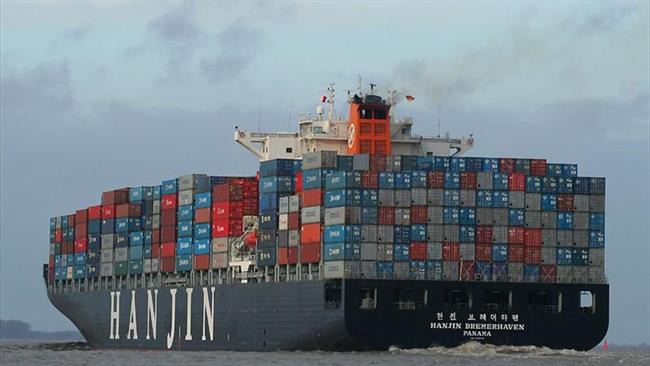International shipping lines are stepping up port calls to Iran as the country’s massive maritime trade sector is emerging from sanctions.
US and European sanctions in 2012 on Iran’s largest ports operator have impaired commercial maritime traffic, curbing otherwise legal trade.
Foreign shipping lines ceased calling on Iran’s ports in the Persian Gulf after the US and the Europeans designated its leading ports operator, the Tidewater Middle East Maritime Company, subject to a trade ban and asset freeze.
Sanctions hampered legal trade such as transport of medical products. Iran relies on container and bulk carriers to transport much of its basic needs, including food and consumer goods. Those willing to risk the liability associated with the Iran trade faced further deterrents as they could not get insurance coverage.
Iran subsequently took the case to the Europeans courts. In January, EU’s General Court, the bloc’s second highest tribunal, annulled the sanctions citing faults with the legal grounds given by the European Union. The case involved Bank Tejarat and 40 Iranian shipping companies, all subject to an EU asset freeze.
The European Union, however, responded by leveling new charges as it has done in other cases and re-designated the bank and 32 companies.
Such behavior has raised questions in the European media and among world observers, with legal experts saying the sanctions are obviously politically-motivated aimed at pressuring Iran.
According to head of the Islamic Republic of Iran Shipping Lines (IRISL) Mohammad Hossein Dajmar, “the EU has not presented any proof or document signifying any wrongdoing by the IRISL for intensification of the sanctions”.
“This goes to indicate the sheer political nature” of the sanctions, he has said.
Iran’s legal victories, however, have their intended effects and cracks have appeared in the wall of sanctions.
According to new reports, commercial trade is scrambling back to life in southern ports, with Iran’s biggest container port having received calls from at least seven major shipping lines over the past year.
The port of Shahid Rajaee near Bandar Abbas — strategically located at the mouth of the Strait of Hormuz — accounts for 90% of Iran’s container traffic.
On Tuesday, it received Hanjin Bremerhaven of South Korea’s largest container carrier Hanjin Shipping Co., also one of the world’s top ten, which arrived from Singapore.
“Discharge and loading operations on the ship were carried out as soon as possible after which the vessel left Shahid Rajaee Port for Jebel Ali in the UAE,” deputy head for ports affairs in Hormuzgan Mohammad Ali Saeedipour said.
He said two more container ships belonging to Taiwan’s Yang Ming Marine Transport Corp. and Evergreen Marine Corp. will dock at the port soon.
A cargo ship belonging to the world’s third largest container company, CMA CGM of France, has already visited Shahid Rajaee as have liners from Singapore’s Pacific International Lines, Taiwan’s Wan Hail Lines and Italy’s Ignazio Messina, he said.
